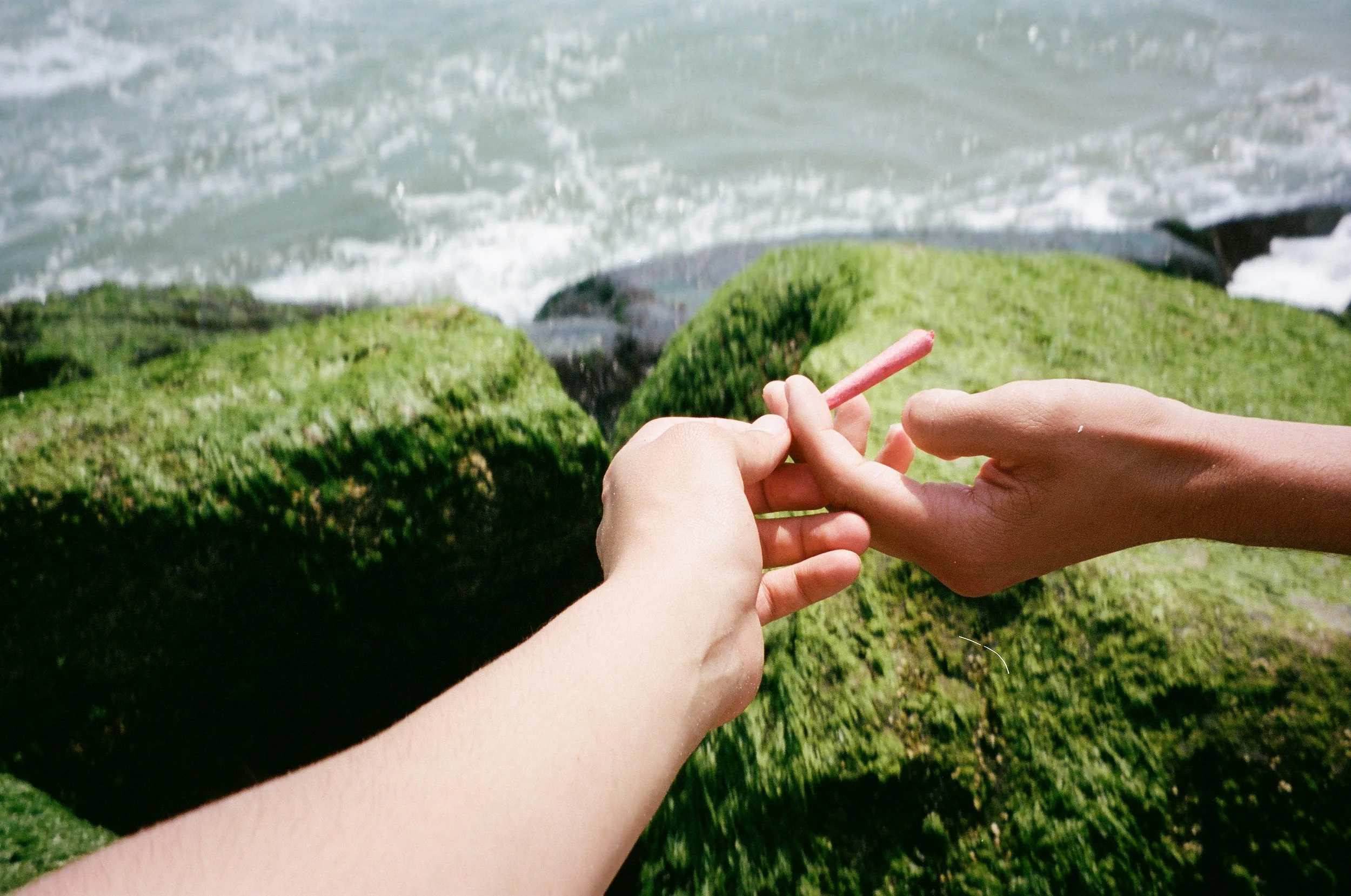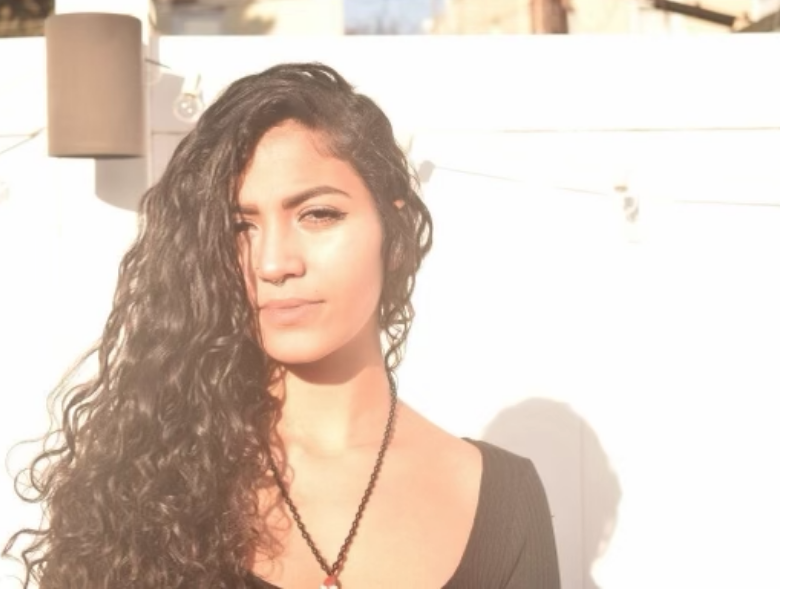the power of pleasure activism in community
authors: Gina, MPH Creator of Queering Existentialism + K, LMSW
photo by Matías Alival
what do these activities have in common?
raving in queer spaces
mindfully smoking a j
healing trauma
sex magic
all of these activities are examples of pleasure activism. one of our favorites is raving in queer spaces, where we often pass our phones back and forth in fluid motions, not interrupting our dancing as we add to our collaborative note.
Hideaz-highdeation:
dancing=energetic conduit of sound, dancing is sound embodied
synesthesia (my dj name?) 🤩💜💜, duhhhhh🤩
i have to pee and then we wanna dance by the 🌳 ?
queerness is a glitch in the system, it exposes its inherent fallacies
=^._.^= ∫- Meow-chews 🥭 🍬 🐈⬛
eco psychology
improvisational Jazz-cuzzi
visit eco villages!
blowing reallyyyyy huge bubbles at parties🫧🫧🫧
trauma processing is so beautiful while you are bathed in sound
PROJECTION MAPPING
dialectic of control and surrender
fear takes the inquisitive mind (i will explain later, re: Joey) 🐈
solitude is necessary to learn how to fuel your own flame 🔥✨
this has become a grounding ritual for us, a way to converse through the pounding music (and to remember later on).
when did you realize pleasure is political?
rituals of pleasure activism in community have become integral to my wellbeing and understanding of how to practically build and sustain nourishing networks of care. on my journey to finding purpose in my life, i eventually found my way to pleasure activism. depression and isolation characterized a significant portion of my late teens and most of my twenties. i deeply internalized capitalistic notions of my value and worth being tied to my productivity (especially in a way that would make my immigrant parents proud). i felt immense guilt and shame around my experiences with sex, drugs, queerness–brief and impactful windows where I would actually inhabit my body, where I enthusiastically wanted to exist as my full self (because I felt safe enough to). I was isolated and in individual therapy, sitting with dread and wondering, is this what it means to graduate college and enter the void of adulthood?
the book Lost Connections by Johann Hari was a lifeline. ideas like, “it’s not a sign of health to be well adjusted to a sick society,” and “loneliness isn't the physical absence of other people…it's the sense that you're not sharing anything that matters with anyone else," catalyzed a paradigm shift in me—both personally and professionally. i put down the hyper-individualistic self-help books and applied the solutions to depression and anxiety from the book to my own life: reconnection to other people, nature, and meaningful work (outside of my day job). over the last two years, connecting with others through psychedelics, music, dance—all critical aspects to refinding meaning as a society in the book Recapture the Rapture: Rethinking God, Sex, and Death in a World That's Lost Its Mind, by Jamie Wheal, has transformed my life. this book takes “radical research out of the extremes and applying it to the mainstream—to the broader social problem of healing, believing, and belonging…(it) provid[es] answers to the questions we face: how to replace blind faith with direct experience, how to move from broken to whole, and how to cure isolation with connection…shows us how to revitalize our bodies, boost our creativity, rekindle our relationships, and answer once and for all the questions of why we are here and what do we do now?”
as i started to heal and experience the benefits of these mental health interventions that i had dismissed as irresponsible hedonism for most of my life, i started to question “what is considered a legitimate mental health intervention? who profits from the status quo?” as i focused on community scale mental health interventions in my Masters in Public Health (MPH) program, i saw a significant gap in research being translated to practice.
it became more clear how systems of oppression, such as capitalism and colonialism, benefit from people feeling incomplete. we indulge in short term gratification that reinforces a dependence on systems that would go bankrupt if people were actually connected, fulfilled, and well.
when i first learned about pleasure activism in Adrienne Maree Brown’s book, “the work we do to reclaim our whole, happy and satisfiable selves from the impacts, delusions and limitations of oppression and/or supremacy,” i understood the medicinal power of pleasure i had been repressing most of my life.
pleasure is inherently political–but who has access to pleasure? who does mainstream society believe deserves pleasure?
building your container: the who and where of pleasure activism
earlier this year, i attended Dance Beyond, an ecstatic dance festival, for the first time, where I also experienced my first collective grief ritual. a fellow participant shared “grief shared is halved and joy shared, is doubled,” and it really stuck with me. i think that this is at the core of community. we cannot heal in isolation. this is why cultivating communal secure attachment is the heart of my work with queering existentialism. in attachment theory, secure attachment is, “characterized by feeling comfortable with closeness and intimacy, being able to communicate feelings and needs in relationships, and being willing to seek help and support when needed.” to me, cultivating communal secure attachment addresses the practical aspects of creating social conditions that support the secure self and interpersonal attachment across networks of people.
after i learned about the concept of social prescribing,“a way for healthcare professionals to refer patients to community-based activities and services instead of or in addition to medication,” in Lost Connections, i started to think about my life experiences that became not only medicinal, but critical to sustaining my wellbeing. whether it be gathering with my friends for a night out raving, yoga, body doubling/throupling/quadroupling etc., sharing a meal, ecstatic dance, group psychedelic experiences, cabin trips, or poetry readings, keeping me afloat and protecting me from falling into the depressive void once again. i began reflecting on how I made and sustained friendships through third spaces, “core setting(s) for informal public life, offering connection, community, and sociability,” and how “...third spaces can be thought of as societal glue. They bind people together to construct communities.”
third spaces are containers for cultivating communal secure attachment.through pleasure activism, i now understand the pathways to healing, amplified and reinforced through intentional shared experiences with others. as i continue to support existing third spaces, and co-creating the intersectional third spaces i want to experience with others—healing-centered harm reduction becomes integral to that work.
from reducing harm to collective healing
as we continue to gather, co-creating third spaces for pleasure activism and looking to community as an alternative to harmful systems, challenges inevitably ensue around safety and sustainability. harm reduction is a way of addressing these concerns, ensuring that essential third spaces are able to flourish.
the term harm reduction became popularized via multiple social movements from the 1960-80s. originally it was an alternative to an “abstinence only” approach to things such as sex and drug use, based on the logic that it is unrealistic to ask or expect people to refrain entirely from activities that could put them at risk. instead, people are safer when it is accepted that there is an inherent risk of harm in certain activities and those situations can be planned for or even prevented.
harm reduction can look like:
providing free drug test strips and teaching people how to use them
enacting a safer spaces policy with staff or volunteers available to intervene throughout a venue
creating a code word for someone to use if feeling unsafe or threatened, an explicit anti-discrimination policy, etc.
harm reduction with more casual gatherings:
assigning someone in the group to be the DD or trip sitter
for solo trips/outings, letting someone know what you’re up to
voicing intentions with friends or the group about how each individual wants to go through the experience.
for first timers with psychedelics, telling them about the potential risks
for us, however, harm reduction in the context of pleasure activism and third spaces is so much more than mitigating harm, it is about developing and implementing practices that keep people safe, promote healing, and cultivate a secure sense of communal attachment. protecting third spaces requires a holistic approach to harm reduction that takes into consideration physical, emotional, psychological and relational wellbeing—going beyond just preventing harm but towards promoting healing. healing-centered-harm-reduction is a framework that covers the physical, emotional, and spiritual aspects of harm reduction.
many of us are carrying immense trauma, and continue to be retraumatized through the systems that hold power in our world—suffering and conflict are inevitable parts of this paradigm. to combat this in our third spaces, we employ the principles of healing-centered harm reduction as outlined in, Towards Bodily Autonomy: Decolonizing Sex Work & Drug Use. Principles include: adaptation, difference, cycles, honoring, time & space, anti-oppression, transformative & practical, community-led, and accountability.
as a psychotherapist who has expertise in treating trauma among gender and sexuality expansive people, i am keenly aware of the impact identity-based invalidation has. the very existence of marginalized identities is under constant threat—leading to depression, anxiety, isolation, interpersonal difficulties, and even the development of PTSD in some cases. the effects of chronic, identity-based invalidation are deeply felt and empirically validated. without access to safe and affirming spaces, it is much harder to heal: “we all need and deserve pleasure and that our social structures must reflect this. In this moment, we must prioritize the pleasure of those most impacted by oppression” says adrienne maree brown in Pleasure Activism. to promote true personal transformation in community, routines and rituals must do more than keep people safe, but also keep people connected and embodied in their authentic selves—this allows people to heal in community.
in our upcoming workshop series, harm reduction for event organizers, we’re gathering event organizers who engage in various forms of space-holding and container creation to discuss pleasure activism, third spaces, and all the ways that we can practice harm reduction holistically. because the most effective harm reduction happens in community, created by the people using it, it’s best when strategies are tailored to the specific space/gathering/container. we’re fostering a collaborative discussion where organizers can share experiences and wisdom while ideating together on how we can make our most valuable third spaces thrive and sustain.
If you are a spaceholder or are interested in becoming one, we would love it if you joined us for our harm reduction for event organizers series, the first one with a focus on pleasure activism & third spaces—creating a safer, more just world, is something that starts on the hyperlocal level, through gathering to discuss these concepts and how to practically implement them.
we want to hear from event organizers about what they are already doing in the realm of harm reduction, where support is needed, and how we can co-create shared resources on a local scale.
HARM REDUCTION FOR EVENT ORGANIZERS
date/time: TUE 11/19, arrive 4:30PM, workshop starts 4:50PM
location: Starr Bar 214 Starr St. Brooklyn, New York
AUTHOR BIOS
GINA
Gina Mostafa MPH, is the founder and director of Queering Existentialism, an education and connection initiative based in NYC that provides workshops and intentional events focused on healing-centered harm reduction and nurturing communal secure attachment. they draw from their lived experiences, intersectional identities, and professional background in public health and gender women’s & sexuality studies to co-create containers for value-based community building and mutual aid.
K
K LMSW, is a social worker and psychotherapist who is passionate about the healing powers of community and third spaces. In addition to facilitating workshops with Queering Existentialism, K provides Dialectical Behavior Therapy, psychedelic assisted psychotherapy, and legal advocacy in NYC.



